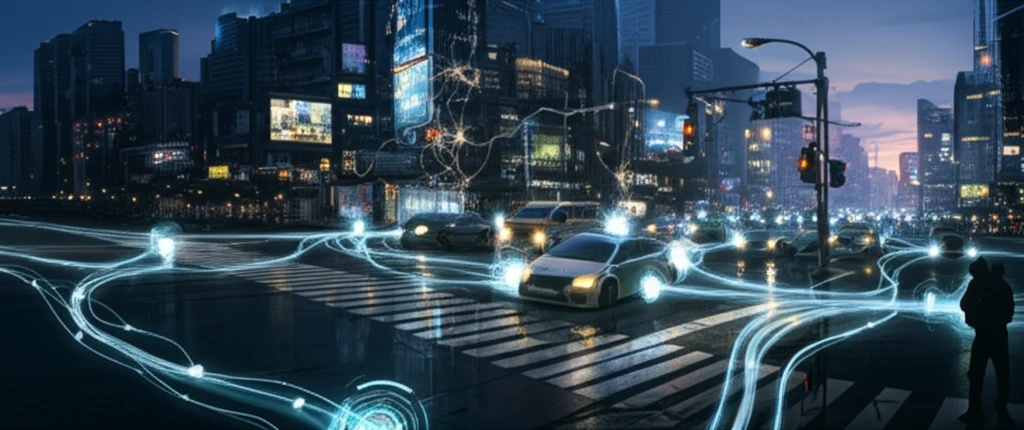
Smarter Roads Ahead: How Fuzzy Logic and AI Could Revolutionize Transportation
"Discover how cutting-edge AI is smoothing out traffic snags and making your daily commute a breeze."
Imagine a world where traffic jams are relics of the past, commutes are smooth and predictable, and transportation systems adapt in real-time to changing conditions. This isn't a scene from a sci-fi movie, but a future rapidly approaching, thanks to advancements in artificial intelligence (AI) and innovative approaches like fuzzy logic. As urban populations grow and the demands on our infrastructure intensify, the need for smarter, more responsive transportation solutions has never been greater.
For years, transportation management has relied on traditional methods, often struggling to keep pace with the complexities of modern traffic patterns. However, the rise of big data, cloud computing, and AI is paving the way for a new era of transportation intelligence. By harnessing the power of these technologies, we can create systems that not only optimize traffic flow but also enhance safety, reduce emissions, and improve the overall commuting experience.
This article delves into the fascinating world of transportation powered by AI, with a special focus on fuzzy logic and genetic algorithms. We'll explore how these concepts are being used to develop intelligent transportation systems that can handle the inherent uncertainties and complexities of real-world traffic scenarios. Get ready to discover how fuzzy logic and AI are working together to build a smarter, more efficient, and sustainable future for transportation.
What is "Fuzzy Logic" and Why is it Important for Transportation?

At its core, fuzzy logic is a problem-solving control system methodology that lends itself to implementation in systems ranging from simple, small, embedded micro-controllers to large, networked, multi-channel PC or workstation-based data acquisition and control systems. It provides a simple way to arrive at a definite conclusion based upon vague, ambiguous, imprecise, noisy, or missing input information. Fuzzy logic's approach to control problems mimics how a person would make decisions, only much faster.
- Managing Uncertainty: Fuzzy logic excels at handling the uncertainty inherent in traffic patterns, such as unpredictable driver behavior or sudden weather changes.
- Real-time Adaptability: Transportation systems powered by fuzzy logic can adapt to changing conditions in real-time, optimizing traffic flow and minimizing congestion.
- Improved Decision-Making: By considering a range of possibilities rather than relying on rigid rules, fuzzy logic enables better decision-making in complex traffic scenarios.
The Road Ahead: Embracing AI for a Smarter Transportation Future
As AI and fuzzy logic continue to evolve, their potential to transform transportation systems is immense. From self-driving cars to intelligent traffic management, these technologies promise a future where transportation is safer, more efficient, and more sustainable. By embracing these innovations, we can create cities that are better connected, less congested, and more livable for all.
